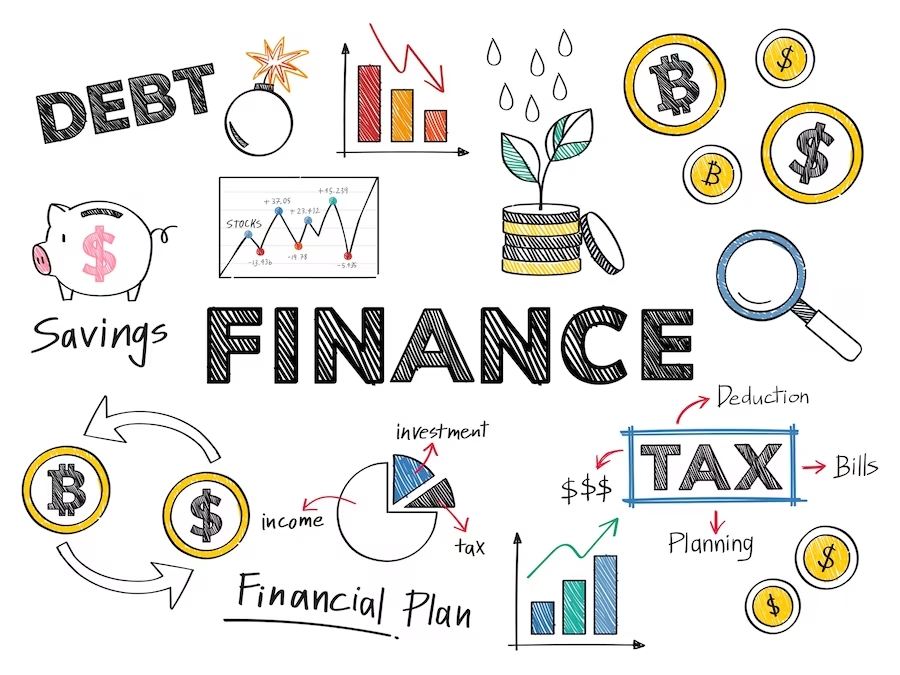Are you dreaming of achieving Financial Success? In today’s tough job market, finding the perfect career path is crucial, and one promising avenue is accountancy. Many students wonder if they can pursue a career in accountancy after completing their 10th grade. The answer is a resounding “yes!” In this warm and inviting guide, we’ll take you on a journey of financial success in accountancy to explore the simple steps and exciting opportunities that await students in the world of accountancy, all while celebrating the fact that you can achieve this dream without the need for a college degree. So, let’s dive into this exhilarating adventure one step at a time.
Table of Contents
Introduction: Achieving Financial Success Through Accountancy
After completing 10th grade, students often find themselves at a crossroads, trying to determine their career path. While many opt for traditional degree programs, there’s an alternative route that can lead to a prosperous career – accountancy.
Understanding Accountancy
What Is Accountancy?
- Accounting, which is also called accountancy, is like a carefully organized system where we keep track of money stuff—like counting, looking closely, and understanding how money moves for people, businesses, or groups.
The Role of an Accountant
- Accountants are financial experts who help organizations and individuals manage their financial affairs. They prepare financial statements, conduct audits, provide financial advice, and ensure compliance with tax laws and regulations.
Educational Requirements
High School Education
- To pursue a career in accountancy after 10th grade, you must first complete your high school education. A strong foundation in mathematics and commerce subjects can be advantageous.
Eligibility for Accountancy Courses
- After 10th grade, you are eligible to enrol in various accountancy courses that will set you on the path to becoming a qualified accountant.
Types of Accountancy Courses
There are several accountancy courses available for students after 10th grade, each offering a different career trajectory.
Please note that while we list these courses below, we will soon be providing in-depth information about each of them. Stay connected with us to gain valuable insights into these courses and discover which one aligns with your career goals.
Professional Accounting Qualifications:
- Chartered Accountancy (CA)
- Cost and Management Accountancy (CMA)
- Company Secretary (CS)
- Certified Public Accountant (CPA)
- Certified Management Accountant (CMA)
- Chartered Financial Analyst (CFA)
- Fellow Chartered Accountant (FCA)
- Certified Internal Auditor (CIA)
- Certified Information Systems Auditor (CISA)
- Certified Fraud Examiner (CFE)
- Certified Government Financial Manager (CGFM)
Academic Accounting Programs:
- Diploma in Accounting
- Bachelor of Business Administration (BBA) in Accounting
- Master of Business Administration (MBA) in Accounting
Specialized Accounting Certifications and Courses:
- Forensic Accounting Certification
- Taxation Courses
- Audit and Assurance Courses
- Financial Planning and Analysis (FP&A) Certification
- Governmental and Nonprofit Accounting Courses
- International Accounting Courses
- Management Accounting Courses
- Financial Reporting Courses
- Accounting Information Systems (AIS) Courses
- Advanced Accounting Courses
- Financial Risk Management Courses
- Accounting Ethics and Professional Standards Courses
- Accounting for Small Business and Entrepreneurship Courses
- Financial Analytics and Data Analysis Courses
- Accounting Software Certification
- Ethical Hacking and Cybersecurity for Accountants
- Environmental and Sustainability Accounting Courses
- International Financial Reporting Standards (IFRS) Certification
- Accounting for Government and Public Sector Courses
- Accounting for Non-Governmental Organizations (NGOs) and Nonprofits
- Cost Accounting and Pricing Strategy Courses
- Financial Statement Analysis Courses
Industry-Specific Accounting Courses:
- Accounting for Real Estate and Property Management Courses
- Accounting for Healthcare Organizations Courses
- Accounting for the Aviation Industry
- Accounting for the Pharmaceutical and Life Sciences Sector
- Accounting for Wealth Management and Financial Planning
- Accounting for Intellectual Property and Patent Valuation
- Accounting for Human Resources and Payroll Management
- Accounting for International Trade and Customs Compliance
- Accounting for Cybersecurity and Information Security
- Accounting for Disaster Recovery and Business Continuity
- Accounting for Space and Aerospace Industry
- Accounting for Art and Collectibles
- Accounting for Digital Marketing and Advertising
- Accounting for Luxury Brands and Fashion Retail
- Accounting for Renewable Energy and Sustainable Finance
- Accounting for Robotics and Artificial Intelligence (AI)
- Accounting for Space Exploration and Space Tourism
For more courses and in-depth information, you can visit our Courses Page and explore other options.
Entrance Examinations
To enrol in these courses, you will need to clear entrance examinations conducted by the respective institutes. These exams test your knowledge of commerce and accounting principles.
Enrolling in Accountancy Courses
Once you have successfully cleared the entrance examinations, you can enrol in your chosen accountancy course. These courses typically involve three levels of examinations.
Skills Needed for Success: The Building Blocks of Financial Success
To excel in the field of accountancy, you need to develop specific skills:
Analytical Skills
- Accountants must analyze complex financial data and draw meaningful conclusions from them.
Attention to Detail
- Accuracy is paramount in accounting. Even small mistakes can lead to big problems.
Communication Skills
- Accountants often need to explain financial data to clients or colleagues, so effective communication is vital.
Ethical Judgement
- Accountants must adhere to strict ethical standards to maintain the integrity of financial information.
Gaining Practical Experience
In addition to theoretical knowledge, practical experience is crucial in accountancy. Many courses require students to undergo articleship or practical training.
Internships and On-the-Job Training
Internships with accounting firms or companies provide valuable hands-on experience. This exposure can help you apply theoretical concepts to real-world situations.
Networking in the Industry
Building a network in the accountancy industry is essential. Attend seminars, workshops, and conferences to connect with professionals and stay updated on industry trends.
Professional Certifications
Getting special certificates can really boost your job opportunities and make your career even better.
Chartered Accountant (CA)
- A CA certification opens doors to a wide range of career opportunities, including auditing, taxation, and financial consulting.
Certified Management Accountant (CMA)
- CMAs specialize in cost management, making them valuable assets in various industries.
Certified Public Accountant (CPA)
- A CPA certification is recognized globally and can lead to lucrative career options.
Career Opportunities: Pathways to Financial Success
With a solid foundation in accountancy, you can explore various career avenues:
Public Accounting Firms
- Work as an auditor, tax consultant, or financial analyst in renowned accounting firms.
Corporate Sector
- Join the finance department of a corporation and handle financial reporting, budgeting, and analysis.
Government Jobs
- Government agencies and bodies often require qualified accountants for financial management.
Entrepreneurship
- Start your accounting practice or consultancy firm and serve clients independently.
Earning Potential
- Accountants are well-compensated professionals. As you gain more experience and collect extra certifications, you’ll likely make more money in your job.
Challenges and How to Overcome Them
While pursuing a career in accountancy can be rewarding, it comes with challenges. These challenges may include demanding coursework, competitive exams, and maintaining ethical standards. To overcome these challenges, stay committed to your studies, seek guidance from mentors, and continuously update your skills.
Conclusion: Your Journey to Financial Success
Embarking on a career in accountancy after 10th grade is not only possible but also an excellent choice for those with a passion for finance and numbers. With dedication, the right qualifications, and a commitment to ethical standards, you can build a successful career in this field.
Frequently Asked Questions (FAQs)
- Can I become an accountant after completing 10th grade?
- Yes, you can pursue a career in accountancy after 10th grade by enrolling in relevant accountancy courses.
- Which accountancy course should I choose after 10th grade?
- It depends on your interests and career goals. Options include CA, CMA, and CS, each offering unique opportunities for success in the field of accountancy.
If you want to explore more high-paying career options and courses, check out our blog on [High Salary Courses].


Leave a Reply